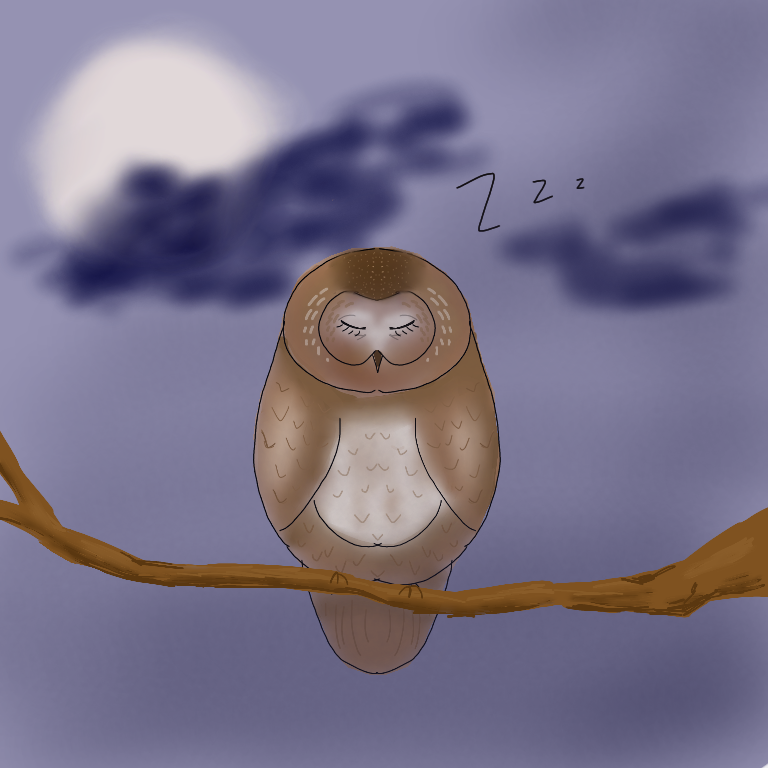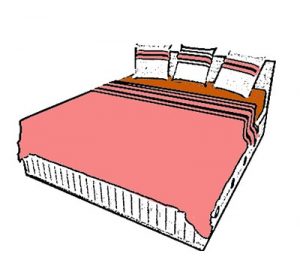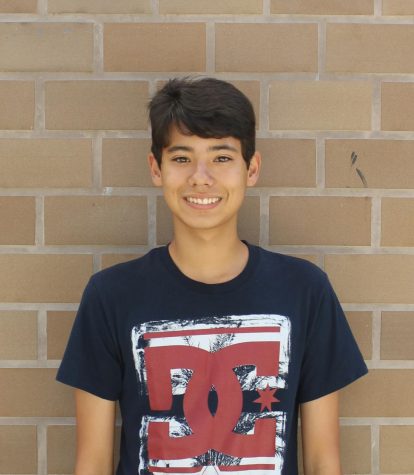Night owls deserve to be understood — not shamed
Teen night owls live in a society that constantly demands them to be early birds.
December 1, 2020
Many would say that COVID-19 is the only major public health crisis that anyone has experienced at our age. But that assumption is not necessarily correct. For years, we have been (and still are simultaneously) facing a seemingly invisible teenage sleep deprivation epidemic in the United States. Despite this, almost no attention has been brought to the negative implications of sleep deprivation on student health. Instead, students have been ignored and worse– blamed. A specific group of those students that are subject to this blame are classified as “night owls.” But for them, it’s not their fault. It’s the early bird world to blame.
What is a night owl?
The term “night owl” is used to describe people who naturally sleep late and wake up late. Night owls also tend to be more productive in the evening hours.
Dr. Richard Coleman, co-director of the Stanford University Sleep Disorders Clinic, quantifies that about 10 percent of the population consists of night owls. Interestingly, a study conducted by the University of Madrid found that almost 32 percent of teenagers exhibit night owl behavior, with “morning larks” (those who sleep early and get up early) representing 25 precent of teens, and the remaining 45 percent falling into an in-between category of neither early nor late sleepers or risers.
At Dougherty Valley High School especially, where a well-known competitive academic culture normalizes sleeping late, night owls are not hard to find. Senior Stephanie Su is one of them. She believes that she simply works better at later hours as her family is asleep, there are no distractions, and she is able to get more done.
Rohit Srinivas, a freshman at the University of California Los Angeles (UCLA) and a DVHS Class of 2020 graduate, shares similar experiences.
Throughout high school, Srinivas consistently slept at around 3-4 a.m. and woke up at around 6:45 a.m.
Srinivas attributes part of his late sleep schedule to extracurriculars and a heavy homework load. However, he also said that part of it is because of his own preference.
“The first thing is temperature. If it’s too hot in my house, I cannot focus. Usually in the late evening, my room is cold, and I start focusing a lot more,” Srinivas said. “Having everyone dead asleep [helps] too; in the daytime my parents call me downstairs and interrupt my state of flow, which disrupts my work a lot.”
Misconceptions and Stereotypes
But not everyone believes that night owls are justified in their behavior.
Inefficient, unfocused, lazy — these are all examples of common stereotypes that people, particularly adults, associate with night owls.
In a Vox article by Brian Resnick, a handful of night owls share their experiences with misconceptions about their sleep and work ethic. Kat Park, a healthcare administrator living in Kansas, told Resnick that her Korean parents thought she was “a lazy f— up” when she was growing up and recalled feeling like a “loser” for not being able to wake up early.
Su explains,“[my parents] tell me almost every single night that successful people sleep and wake up early,” making it seem like being a morning bird is the only way to be productive.
She continues that her parents always throw phrases around like “be more efficient” and “sleep earlier,” even when the root causes for her sleep patterns (personal preference and academic pressure) are not being addressed.
Our parents are no different. They often berate us for staying up too late, and blame apps like TikTok or YouTube for distracting us from our work. They think we are unproductive as a result, causing us to take much longer on assignments than others. And of course, they perceive waking up late — even on the weekends — as a symbol of carelessness and laziness, feeding into the mentality that “the early bird gets the worm.”
This stigma around night owls has driven parents to explore various methods to “fix” their children’s sleep schedules. According to a national poll conducted by the University of Michigan, 54% of parents have encouraged their children to limit caffeine in the evening, 53% have tried to turn off their children’s electronics at night, and 44% have experimented with giving their children a snack before bed — all aimless procedures that don’t address the underlying factors that lead to late sleeping habits.
It’s a matter of genetics
Sure, maybe some teens go to bed late because they’re binging a new Netflix show or drinking coffee too late in the day. But we shouldn’t be so quick to extrapolate these assumptions to all night owls. Science suggests that biological factors may cause some night owls to be the way they are.
In a Vox video titled “Late sleeper? Blame your genes,” they explain that everyone has different chronotypes, or preferred sleeping patterns. Your chronotype is determined by your body’s internal clock (also known as the suprachiasmatic nucleus), which is heavily influenced by “clock genes,” DNA in your body that controls body functions related to sleep.
Some people’s clock genes cause their internal clock to run hours earlier than the average chronotype, and others’ cause their internal clock to be severely delayed. The genes you inherit cannot be changed, so most people’s internal clocks — and thus their sleeping patterns — also cannot be altered.
Srinivas recalls a phase during the summer where he tried to wake up around 5-6 a.m everyday.
“I slept really early, but then I wasn’t getting any work done; I found myself working in slow motion in the morning.”
Eventually, he transitioned back to his regular night owl work and sleep schedule and found himself to be more efficient.
“Forcing yourself to wake up early doesn’t really solve the problem. [You] have to deal with what genetics you have,” Srinivas concluded.
Some people’s clock genes delay their internal clocks so much that it can be classified as a disorder. For example, Delayed Sleep-Wake Phase Disorder (DSWPD) is a condition that affects 7-16% of adolescents. It is classified as having a sleep schedule that is delayed by two or more hours beyond what is considered socially acceptable and often results in insomnia, excessive daytime drowsiness, and behavioral issues like depression or anxiety.
The American Academy of Sleep Medicine explains that even if the disorder is not inherited, night owls are inherently at high risk of developing the disorder due to their abnormal chronotypes — another issue that they cannot control.
Accommodating night owl schedules in mainstream society
To be clear: just because night owls cannot change their genetics does not mean that everything is a-ok. Unfortunately, there are many negative effects that result from being a night owl. According to a Canadian study of 30,117 students in grades 6-10, those with later chronotypes were found to have more emotional problems, more behavioral issues, and less prosocial behaviors. Additionally, late chronotypes are also associated with increased risk of depression, substance abuse, and other mental and addictive disorders.
Many of these issues are compounded by — if not a direct result — of the one-size fits all schedule that society has created. A nine-to-five certainly does not fit all: it exclusively fits early birds, while night owls suffer trying to force their bodies to deal with a schedule they simply cannot accustom themselves to. For student night owls, the struggle is even harder because school usually starts before 9 a.m. and extracurriculars and homework require work way past 5 p.m.
Clearly, something needs to change. And since it cannot be genetics (yet), it has to start with society.
Joy Wake is a parent advocate and current California outreach coordinator for the Let’s Sleep! initiative of Start School Later (aka Healthy Hours), a nonprofit dedicated at increasing awareness and advocacy on the importance of sleep for teens.
Healthy Hours consists of over 130 chapters nationwide, each pushing for legislative reform on school start times in their state. One of the most notable achievements that can be partially attributed to the California chapter of Start School Later is the passing of SB328, which mandates high schools start no earlier than 8:30 a.m. The bill was signed into law in 2019, and will take effect starting 2022.
More bills like SB328 are crucial for improving student health.
In fact, research shows that every additional hour of sleep on school days is associated with less emotional and behavioral problems and better academic performance.
Reflecting on how his own life has changed, Srinivas stresses that college has been a game changer for his health. Because of UCLA’s scheduling flexibility, he starts lectures no earlier than 10 a.m, allowing him to get around 7-8 hours of sleep each night.
Srinivas realized that he has become extremely attentive to detail as a result of increased sleep, and he has also been able to exercise without feeling exhausted or losing too much muscle mass. Evidently, being able to sleep in more has a positive impact on teen night owls.
However, Wake and Srinivas emphasize that legislation delaying school start times is just the first step. Srinivas believes decreasing the amount of class time is also necessary.
“We need to make schooling more efficient and give students more flexibility. We spend half of class actually learning things and then the rest of class is doing worksheets,” Srinivas said. “Giving students the opportunity to just attend lectures and then do classwork at home would really help.”
Wake also believes that public awareness is a precursor to and necessary for legislative reform. She believes that “the best thing we can do legislatively is help school districts communicate” with parents to help them understand that their children will actually perform better in school when they’re learning at a time that is aligned with their own circadian rhythm.
Ultimately, it comes down to the decision-makers in society: adults. If they are not willing to change school start times or attitudes on the importance of sleep, not much progress can be made. Wake acknowledges that “sometimes adults are resistant to change”, but she thinks that the pandemic may present a unique opportunity for something different.
“It’s going to be really hard for [schools and parents] to follow public health guidelines regarding COVID but not follow public health guidelines from the American Academy of Pediatrics around sleep deprivation. We’ve learned that science and public health matter. We can do this for kids,” Wake said.
As incomprehensible as the lifestyle of night owls may seem to early birds, it doesn’t mean one sleep cycle is more favorable than the other. As a society, it’s time we acknowledge that a master schedule doesn’t work for all — and that’s ok.







